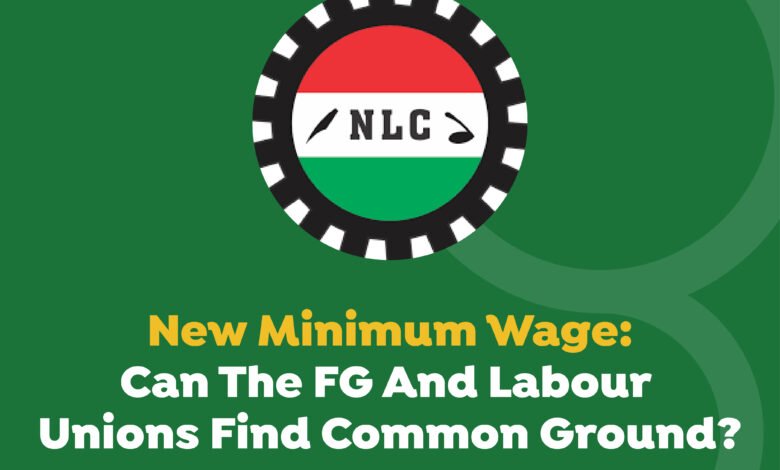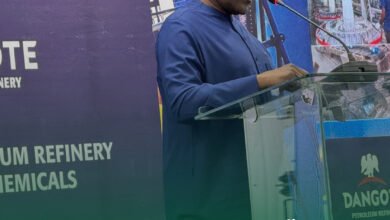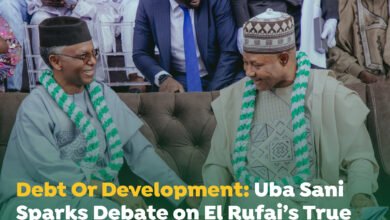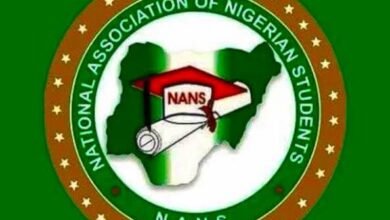New Minimum Wage: Can the FG and Labour Unions find common ground?

Nigeria’s minimum wage is back in the spotlight. In 2019, a hard-fought increase brought the minimum from ₦18,000 to ₦30,000. But with rising inflation, labor unions are calling for another raise.
President Bola Tinubu having promised improved worker welfare during his campaigns is obliged to deliver on another of his numerous promises but the unanswered question is what would be a ‘perfect ‘ minimum wage for the Nigerian workers.
Last raise
When former President Muhammadu Buhari signed the new minimum wage 2019 Act into law on the 18th of April 2019, many considered it a big win for Nigerian workers.
It marked a significant milestone after almost a decade since former President Goodluck Jonathan acceded to the demand of the labor unions.
Apart from raising the wage, the 2019 new minimum wage Act also states that it must be reviewed periodically to reflect and represent the current economic realities of the country.
Five years down the line, the organized labor unions are back on the negotiation table with the government for an upward review of the worker’s take-home package.
‘The New Sheriff In Town’
A recurring theme once the country transitions from one government to another has always been wages increment.
Consistent in their demands for increased wages that align and reflect market dynamics and inflationary trends, labor unions have continued to fight workers’ welfare, well-being, and interests at different levels.
But critics have warned the labor unions not to rest on its laurels
In keeping with his campaign promise of an improved workers welfare package, the Tinubu administration has set up a 37-member tripartite committee on minimum wage.
This committee is headed by former Head of the Civil Service of the Federation, Bukar Aji with members drawn from the federal government and state governments, the private sector, and organized labor.
‘Not Feasible’
Experts believe a higher minimum wage will strengthen workers’ purchasing power and invigorate the economy.
However, beyond this, President Tinubu’s May 29th inauguration speech, which announced fuel subsidy removal, has even made the need for a new minimum wage implementation more urgent.
Presently, a stop-gap effort of paying N35,000 to cushion the effect of the subsidy removal is in place but the TUC President, Festus Osifo noted that the expectation that the federal government will announce a new minimum wage on May 1 is unrealistic.
“So, certainly, May 1, will not work for the pronouncement of the new minimum wage. Except if the federal government wants to pay the minimum of 500,000 to workers.”
“The negotiation by the tripartite committee is still ongoing,” TUC President, Festus Osifo told journalists, adding that, “If you remember, the TUC earlier submitted N447,000 as the new minimum wage but we have harmonized our figure with the Nigeria Labor Congress. It is now 615, 000.”
Realistic agenda
Canvassing for the minimum wage, the minority leader of the House of Representatives, Kingsley Chinda declared that anything less than N100,000 for Nigerian workers would be unacceptable. “The rising inflationary rate in the country has hurt the cost of living with the galloping inflation that cuts across all the facets of life,” he contended.
While a higher minimum wage is undeniably necessary to combat inflation and improve worker well-being, achieving a “perfect” figure requires a delicate balance.
Labor unions have a crucial role to play because demands that far exceed economic realities risk stalling progress altogether.
A figure that cripples businesses or stalls economic growth ultimately hurts the very workers the unions aim to protect.





